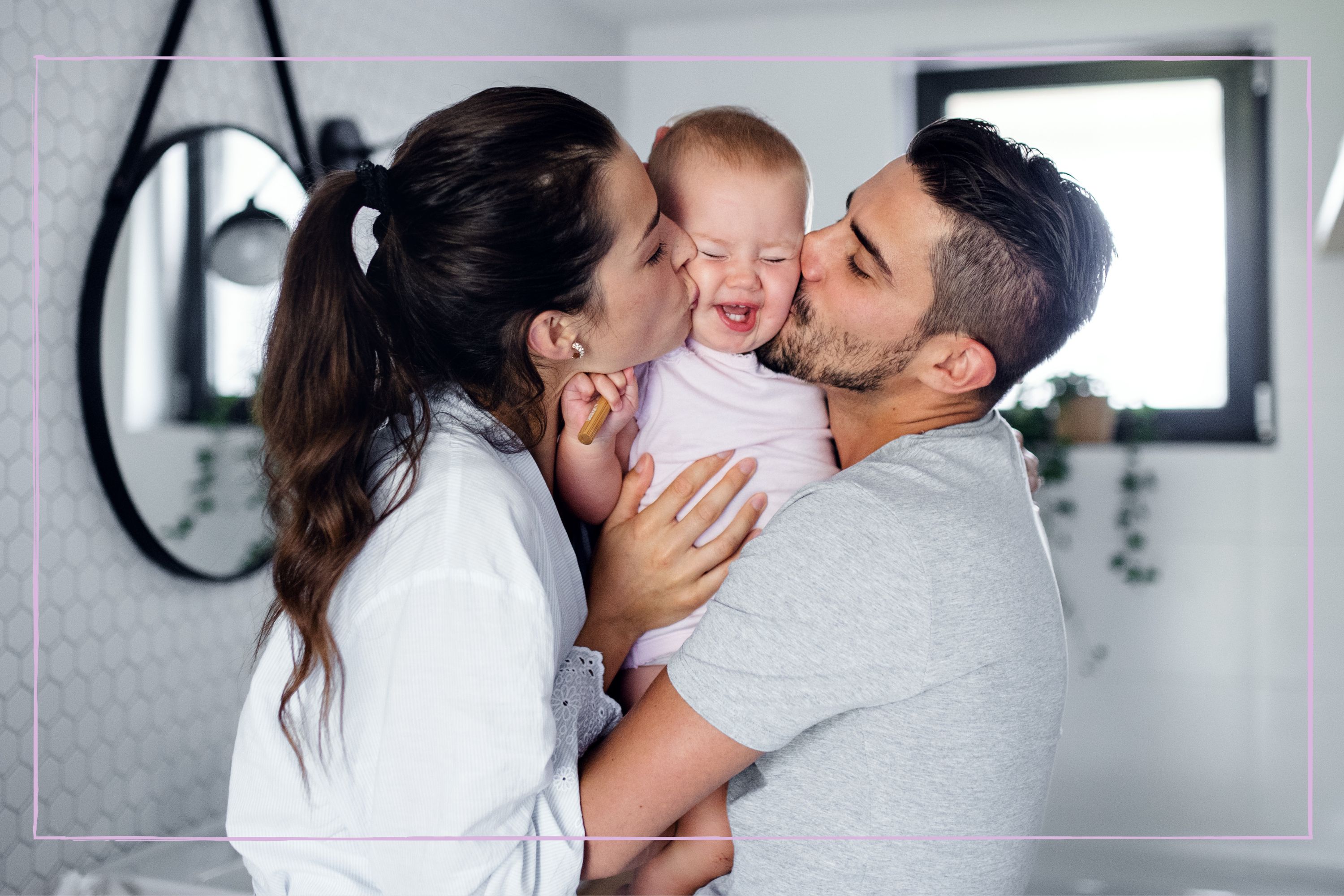Does your partner love your kids more than you? New research says probably yes
A new study has revealed the different types of love we feel for those in our lives and highlighted which bond is the strongest

Have you ever been forced to wonder if your partner loves your kids more than they love you? Well, science has now revealed that they probably do.
It's inevitable that having children will change your relationship with your partner, whether that's in small ways like having to find new ways to connect with your partner after your kids have gone to bed, or in bigger ones like feeling completely disconnected from your partner after having a baby (which is more normal than you think).
But a huge change, that many people have long suspected to be true, has now just been proved by science. Yes, if you've ever felt that your partner loves your kids more than they love you, you're probably right as research has revealed that the bond between a parent and child majorly trumps the romantic bonds in our lives.
But if you're upset that your partner's love for you is no longer the most important thing in their life, remember that the research also applies to you, and your love for your kids has also outweighed your love for your partner too!
To get to this conclusion, scientists at Aalto University in Finland studied MRI scans and looked at people's brain activity while they read descriptions of different types of love to them. One prompt read, 'You see your newborn child for the first time. The baby is soft, healthy and hearty – your life’s greatest wonder. You feel love for the little one.' Another one said, 'Your child runs to you joyful on a sunny meadow. You smile together and the sunrays flicker on their face. You feel love for your child.'
All of the study's 55 participants, aged 28 to 53, had at least one child and were in a 'loving couple relationship'.
Through the research, in total, six types of love were studied including for children, partners, close friends, pets, strangers in need and nature.
Parenting advice, hot topics, best buys and family finance tips delivered straight to your inbox.
Children elicited the strongest response from the participants, with romantic love coming in second place.
But while the intensity of the responses differed between scenarios and types of love, all types of love, the research found, are activated in the same area of the brain no matter whether that was a love for nature or a love for your own children.
Explaining the findings, Parttyli Rinne, lead researcher from Aalto University said, "In parental love, there was activation deep in the brain's reward system in the striatum area while imagining love, and this was not seen for any other kind of love."
But while romantic love seems to be relegated into 'second place' after having kids, the relationship is still an extremely strong and important one in everyone's lives. If you're struggling to connect properly though, there are plenty of expert tips and tricks to get your relationship back on track.
For one, if you're feeling insecure in your relationship, check if you recognise these 6 'healthy habits' - you might realise your relationship is stronger than you think. And, keep arguing with your partner? Psychiatrist reveals the one phrase that could save your relationship. Plus, a psychologist shares 6 signs you've found your soulmate (but our experts say there’s a problem for parents).
Charlie Elizabeth Culverhouse is a news writer for Goodtoknow, specialising in family content. She began her freelance journalism career after graduating from Nottingham Trent University with an MA in Magazine Journalism, receiving an NCTJ diploma, and earning a First Class BA (Hons) in Journalism at the British and Irish Modern Music Institute. She has also worked with BBC Good Food and The Independent.